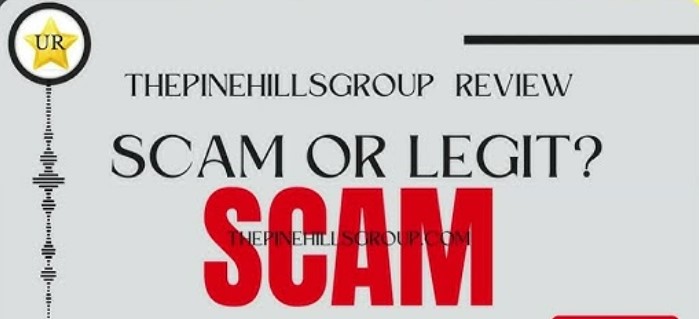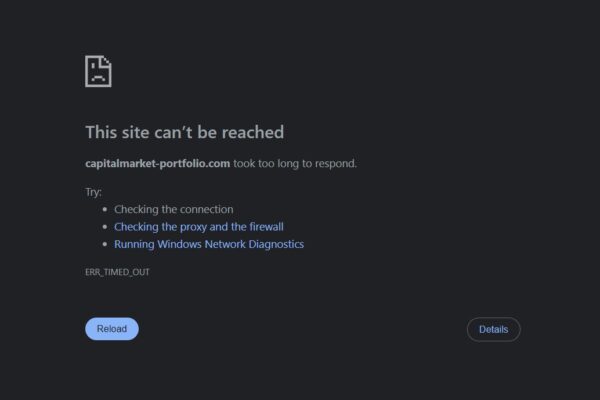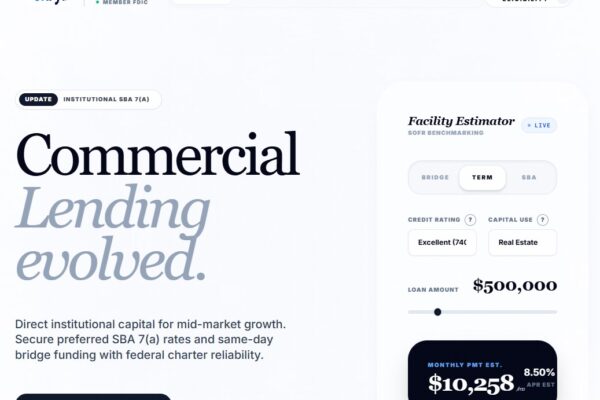ThePineHillsGroup.com Scam Review -A Dubious Platform
Opening — the boutique pitch that felt comforting (investor vignette)
Maya wanted a safer place to park a portion of her savings. A promoted post highlighted ThePineHillsGroup.com — “personalized wealth management,” “exclusive strategies,” and a tidy testimonial from a smiling client. The website felt like a boutique advisory: calm colors, friendly language, clear-sounding tiers, and an invitation to book a “free consultation.” A polite rep called, answered her questions, and guided her through a straightforward sign-up. It all felt comforting and professional.
Three months later, when Maya asked to withdraw a portion of her balance, the tone shifted. New verification requests appeared, “processing fees” were introduced, and the account manager delayed responses. What began as a quiet, trustworthy relationship turned into a string of evasions. Maya’s experience mirrors a pattern I’ve seen repeatedly: platforms that look like small, reputable firms but then create friction when money needs to leave. That’s why we took a closer look at ThePineHillsGroup.com.
Short verdict (risk-based)
ThePineHillsGroup.com shows multiple practical warning signs typical of high-risk or potentially fraudulent investment operations: limited corporate transparency, no clearly verifiable regulatory footprint, persuasive sales tactics that encourage escalating deposits, and a consistent pattern of withdrawal friction reported by users. Taken together, the evidence suggests this platform is unsafe for entrusting substantial funds.
1) First impressions vs. verifiable facts
A polished site and friendly service are not proof of legitimacy. Good marketing lowers suspicion — exactly the effect ThePineHillsGroup.com seems engineered to produce. Real credibility requires a few non-negotiable facts on public view:
-
a legal company name and registration number that you can check;
-
a verifiable physical address and contact details;
-
named executives or a compliance officer with public credentials;
-
clear disclosure of any regulator licence (if the product requires it).
On ThePineHillsGroup.com these trust anchors are thin or absent. Where a boutique should show corporate filings or an office footprint, the site offers marketing language and a contact form. That gap turns professional design into persuasive packaging rather than verifiable accountability.
2) Ownership and who you can hold accountable
If something goes wrong, you need to know who to call — and whether that party is legally reachable. Risk increases when ownership is masked or when a site lists only generic corporate statements without meaningful identifiers.
Red flags in this area include:
-
domain registration details being privacy-protected;
-
“about” pages with stock photos and generic bios;
-
contact addresses that resolve to virtual office services or PO boxes rather than an actual operating headquarters.
ThePineHillsGroup-style opacity makes legal or regulatory follow-up difficult. If funds are contested, an anonymous operator is far harder to pursue than a named company with a verifiable address.
3) Regulation and oversight — the missing safety net
Regulation is not a marketing badge — it’s a safety system: audits, capital rules, client money protections, and complaint mechanisms. Firms that manage money typically operate under a regulator’s oversight, or at the very least declare their registration status.
When a platform lacks a checkable licence or uses vague language like “licensed partner network” without verifiable proof, that absence materially reduces the protections available to clients. For anyone entrusting capital, the absence of visible regulatory oversight is among the most important single risk factors to consider.
4) The onboarding funnel — from welcome to upsell
A typical risky playbook looks like this:
-
Smooth sign-up and quick human contact.
-
Early simulated gains or small successful withdrawals to build trust.
-
Persistent nudging to upgrade to premium tiers with larger minimums.
-
Complications and resistance when withdrawals increase in size.
ThePineHillsGroup.com appears to use many elements of this funnel: a free consultation, account tiers with “enhanced” benefits, and attentive account reps who emphasize the value of upgrading. That sequence is effective at converting a cautious person into a larger depositor before they’ve had a chance to test withdrawal mechanics at scale.
5) Marketing messaging — promises and omissions
Promotional lines you should view skeptically include guarantees of high returns, use of words like “exclusive” to create scarcity, and claims that proprietary methods eliminate risk. Real investment firms stress risk, volatility, and the chance of loss; they rarely promise certainty.
If marketing highlights steady, guaranteed growth without transparent strategy and historical proof, treat it as a persuasive pitch rather than evidence. ThePineHillsGroup’s materials emphasize bespoke strategies and client success stories but provide little in the way of audited track records or concrete past performance.
6) The deposit/withdrawal asymmetry — the operational litmus test
One of the most reliable empirical checks is to see how the platform treats money:
-
Are deposits processed instantly across multiple methods?
-
Are early, small withdrawals allowed (to build confidence)?
-
When larger withdrawals are requested, do additional fees, “processing” checks, or new document requests appear?
If deposit is frictionless and withdrawal becomes obstructed, that’s a major red flag. Numerous accounts tied to firms like ThePineHillsGroup describe precisely this asymmetry: easy in, hard out. That operational pattern is the clearest signal short of definitive proof that the model prioritizes intake over fair payouts.
7) Terms & conditions — where the operator holds the levers
Contracts often contain the practical levers used when clients request money back. Red flags include clauses that allow the operator to freeze funds for nebulous “compliance” reasons, retroactive processing fees, or bonus conditions that make funds non-withdrawable unless unrealistic trading volumes are met.
Always read the small print. If ThePineHillsGroup.com’s terms give the operator broad discretion to delay or withhold withdrawals, those clauses will likely be invoked when problems arise.
8) User support behavior — sales vs service
A telling pattern in risky operations is the role reversal between sales and support: sales teams are responsive and attentive before deposit; support becomes unhelpful or evasive after withdrawal attempts.
If you notice an account manager suddenly hard to reach or support that sends template responses about “pending verifications,” that’s not mere bureaucracy — it’s a feature of many deposit-focused operations. Consistent, documented support with ticket numbers and clear timelines is the baseline you should expect; anything else is risky.
9) Psychological mechanics — why people keep depositing
ThePineHillsGroup employs social and psychological levers: personalized attention, story-based testimonials, authority cues (experts, proprietary algorithms), and scarcity. Early small wins compound trust, making subsequent asks for larger deposits emotionally easier to accept. Recognizing those levers helps explain how smart people can escalate exposure quickly.
10) Quick red-flag checklist — one page you can use now
-
Is the company’s legal name, registration number and physical address clearly published and verifiable?
-
Does the platform display a licence with a recognised financial regulator (if required)?
-
Are custodians or banks named and independently checkable?
-
Are the performance claims backed by exportable statements or third-party audits?
-
Are withdrawal terms transparent with no surprise “release” fees?
-
Do account managers push you to deposit more before you’ve tested withdrawals at scale?
-
Is the domain recent and ownership masked in WHOIS records?
-
Are testimonials corroborated by independent, dated reviews outside the site?
If the answer to most of these is “no,” your risk is high and exposure should be avoided.
Final assessment — a practical, risk-based conclusion
ThePineHillsGroup.com combines boutique styling with structural opacity: limited public corporate data, a lack of verifiable regulatory anchors, persuasive marketing combined with upsell pressure, and user-reported withdrawal friction. Individually, some of these items can exist in legitimate startups; together they form a pattern commonly associated with high-risk, predatory investment operations.
This review is a practical risk assessment, not a legal judgment. For anyone protecting capital, the prudent course is simple: require transparent, verifiable evidence — company registration, regulator licence, custodial disclosures, audited performance and a track record of reliable withdrawals — before entrusting meaningful funds. In the absence of those, treat ThePineHillsGroup.com as an elevated risk.
Report ThePineHillsGroup.com Scam and Recover Your Funds
If you have lost money to ThePineHillsGroup.com Scam, it’s important to take action immediately. Report the scam to Jayen-consulting.com, a trusted platform that assists victims in recovering their stolen funds. The sooner you act, the better your chances of reclaiming your money and holding these fraudsters accountable.
Scam brokers like ThePineHillsGroup.com continue to target unsuspecting investors. Stay informed, avoid unregulated platforms, and report scams to protect yourself and others from financial fraud.
Stay smart. Stay safe.






